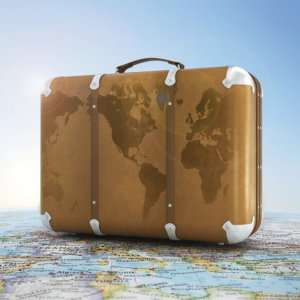Predictive Analytics Are a Traveler’s Best Friend
Amadeus uses analytics to help customers avoid the headaches of air travel.
Topics
Competing With Data & Analytics
“Travel intelligence” may seem an oxymoron when flying today’s cramped, choked, and often cheeseparing skies. But Amadeus, one of the largest vendors of travel and technology services, thinks intelligence is something the travel industry wants more of — and will pay for.
Amadeus, the Spanish concern worth $4.1 billion [3.1 billion euros, 2013; $2.2 billion or 1.7 billion euros, first six months of 2014], counts as customers tens of thousands of travel agents, including corporate, consumer, and online counterparts like Kayak.com and Orbitz, as well as major airlines.
To Amadeus, “travel intelligence” used to mean data on ticketing and bookings. But its customers now want more than that kind of data, says Thomas Cauthen, Amadeus’ global head of sales and business development for travel intelligence. So in February 2013, Amadeus created a travel intelligence business, hiring as its head Pascal Clement, who was running SAP’s Enterprise Information Management business.
Since then, the Travel Intelligence unit has hired close to 100 people, among them more than 40 data scientists, a position created at Amadeus just last year. The unit is using analytics to create new products like Schedule Recovery, which addresses what the industry calls “irregular operations” — what the rest of us would call “delays.” Schedule Recovery will automatically rebook people who miss a flight.
Hiring 40 new data scientists at a time when many companies would like just one or two created an obvious challenge. Cauthen says Amadeus was fortunate in that it could tap into some of its existing staff; in particular, Amadeus pulled data scientists from its operations research group. The rest it hired from outside the company, taking advantage of ties it had with universities, especially in Europe.
It looked for operations research specialists from other industries, and nabbed people with PhDs in biology, statistics and mathematics. It even hired an astrophysicist from the European Space Agency. “There, she was putting equipment into orbit, and here we ask her to work on personalization,” Cauthen says. “Her comment was that analyzing stars is not that far off from analyzing customers and their different priorities.”
Such data scientists had to be able to talk with clients, “to put the piano players on the piano,” Cauthen says.

